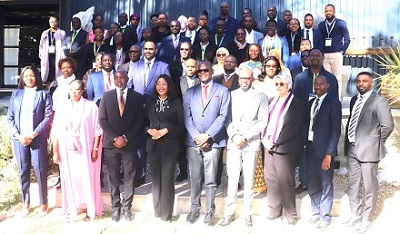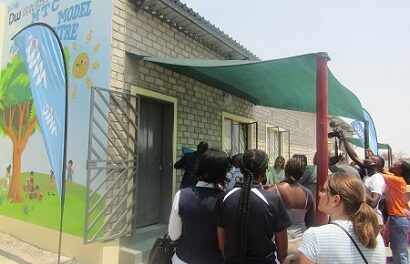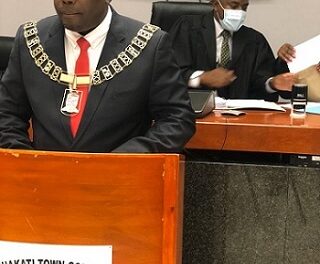The Communications Regulatory Authority of Namibia (CRAN) is hosting the African Telecommunications Union (ATU) meetings from 15 to 19 July 2024.
These meetings include the 1st African Preparatory Meeting (APM26-1) for the International Telecommunication Union (ITU) Plenipotentiary Conference in 2026 (PP-26) and the 2nd African Preparatory Meeting for the ITU World Telecommunication Development Conference in 2025 (WTDC-25).
The purpose of these meetings is to gather stakeholders from various African countries to discuss and prepare for the upcoming conferences.
These meetings provide a platform for collaboration, networking, and the exchange of ideas, ensuring that African countries are well-represented and can effectively contribute to global discussions and decision-making processes.
During his address Mr Elvis Nashilongo, CRAN’s Vice Chairperson, emphasised the importance of these sessions in advancing the role of Information and Communication Technologies (ICTs) for socio-economic development.
He encouraged delegates to seize the opportunity to collaborate, share insights, and explore partnerships to drive progress in expanding broadband access, enhancing digital infrastructure, and fostering digital literacy across the continent.
“As we gather for the 1st African Preparatory Meeting for the ITU Plenipotentiary Conference 2026 and the 2nd African Preparatory Meeting for the WTDC-25, let us embrace this opportunity to connect, collaborate, and work towards a more inclusive and sustainable digital future for Africa,” said Nashilongo.
Ms Emma Theofelus, the Namibian Minister of Information and Communication Technology (MICT), stated that “In today’s digital age, access to affordable and reliable telecommunications infrastructure is no longer a luxury but a necessity for the development of our countries and the well-being of our people.”
She highlighted that advancing connectivity is essential for driving economic growth, promoting social inclusion, and fostering innovation, making it crucial to create a connected Africa for sustainable development.
“Namibia has made significant progress in expanding access to ICT services and bridging the digital divide. The National Broadband Policy has laid the foundation for a vibrant and competitive ICT sector that drives innovation, creates jobs, and improves the quality of life for all Namibians,” Theofelus said.
“However, we recognise that there is still much work to be done to ensure that no one is left behind in the digital revolution.”
Theofelus further stated that one of the key challenges facing many African countries is the lack of adequate infrastructure to support the growing demand for ICT services.
She also stated that as the country prepares for the ITU Plenipotentiary Conference 2026 and the World Telecommunication Development Conference 2025, it must focus on increasing investments in broadband networks, expanding coverage to underserved areas, and promoting digital literacy and skills development.
“Another critical issue that we must address is the need to foster a competitive and inclusive ICT sector that benefits all stakeholders. By promoting a regulatory environment that encourages investment and innovation, we can create opportunities for small and medium-sized enterprises, drive down costs for consumers, and stimulate economic growth,” added Theofelus.
“It is essential that we work together as a continent to address the challenges and opportunities presented by the digital revolution.
“By collaborating with key stakeholders such as the ATU, ITU, and other international organisations, we can develop solutions tailored to the needs of African countries and ensure that Africa remains at the forefront of the global ICT sector.”
In the photo: Namibia’s Information and Communications Technology Minister Emma Theofelus flanked by ATU delegates.







